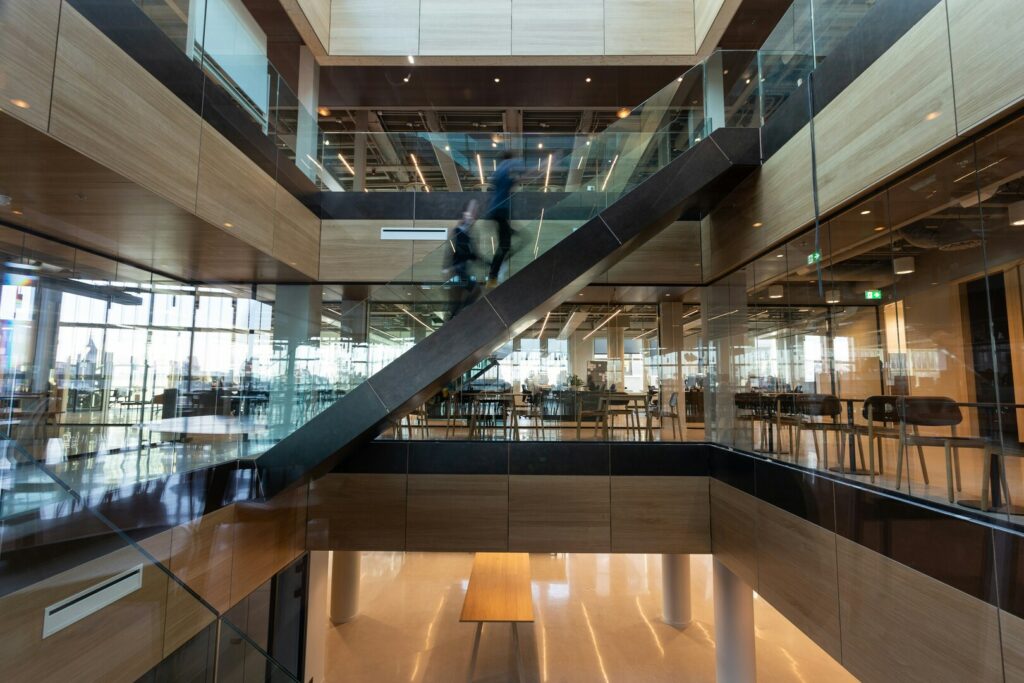
Facilities management has undergone significant transformation in recent years, driven by rapid technological advancements, changing workforce dynamics, and a heightened focus on sustainability. As organisations strive to create more efficient, comfortable, and sustainable environments, several key facilities management trends are shaping the future.
One of the most impactful facilities management trends is the integration of smart technologies. The Internet of Things (IoT), artificial intelligence (AI), and big data analytics revolutionise how facilities are managed. Smart buildings equipped with IoT sensors can monitor various parameters such as temperature, humidity, occupancy, and energy consumption in real time. This data can be analysed to optimise HVAC systems, lighting, and other building operations, leading to significant energy savings and improved occupant comfort.
AI-powered predictive maintenance is another game-changer. By analysing data from equipment sensors, AI algorithms can predict when a piece of equipment is likely to fail and schedule maintenance before a breakdown occurs. This reduces downtime and maintenance costs while extending the lifespan of assets.
Moreover, smart security systems using AI and IoT can enhance safety by providing real-time surveillance, automated threat detection, and immediate response capabilities. These systems can integrate with access control and emergency response protocols, ensuring a comprehensive approach to building security.
Sustainability has become a cornerstone of modern facilities management. With increasing awareness of environmental issues and stringent regulations, organisations prioritise green building practices and energy efficiency. Facilities managers are now tasked with reducing the carbon footprint of buildings through various strategies:
The focus on employee well-being and productivity has shifted towards human-centric design in facilities management. Organisations recognise that the physical environment significantly impacts employee health, satisfaction, and performance. Key aspects of this trend include:
Data-driven decision-making is becoming increasingly important in facilities management. The vast amount of data generated by smart buildings and IoT devices provides valuable insights that can drive efficiency and innovation. Key applications of data analytics in facilities management include:
Integrated Facilities Management (IFM) is gaining traction as organisations seek to streamline operations and improve service delivery. IFM involves consolidating multiple FM services under a single contract and management structure. This holistic approach offers several benefits:
The COVID-19 pandemic has profoundly affected facilities management, introducing new challenges and accelerating existing facilities management trends. Key impacts include:
A convergence of technological innovations, sustainability imperatives, and a renewed focus on occupant well-being is shaping the future of facilities management. As smart technologies become more integrated and data analytics more sophisticated, facilities managers will be better equipped to create efficient, sustainable, and human-centric environments. By embracing these emerging facilities management trends, organisations can not only enhance operational efficiency and reduce costs but also create healthier and more productive spaces for their occupants. The role of facilities management is evolving, and those who adapt to these changes will be well-positioned to lead in this dynamic and ever-changing field.
For more information about workplace analytics, click the button below
Subscribe to the monthly newsletter!
By clicking the “Subscribe” button above, you agree to the Terms & Conditions and Privacy Policy
2014 – 2024 Proudly designed and made in Lithuania
Over 60,000 users worldwide can’t be wrong – see for yourself why they choose TableAir.